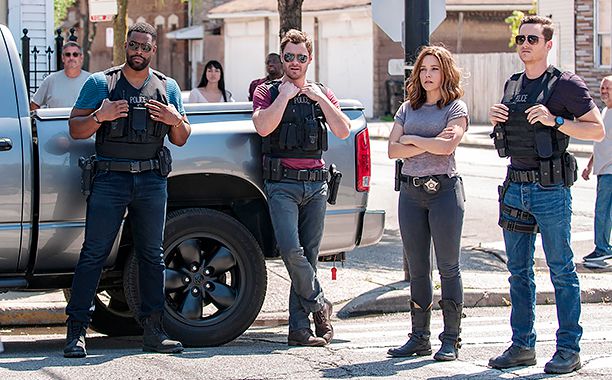
The Precipice of Damnation: Chicago P.D. Season 13 Trailer Hints at Voight’s Most Dangerous Move Yet
The siren wail that opens a Chicago P.D. trailer is more than just a sound; it's a visceral, unsettling promise. It’s the sound of a city teetering on the edge, and more often than not, it’s the personal theme song of Hank Voight. For twelve seasons, we’ve watched Sergeant Voight traverse a moral landscape so scorched and convoluted, it makes most TV anti-heroes look like choir boys. He has bent, broken, and outright shattered rules, crossed lines of legality and ethics with casual impunity, all in the name of a twisted, unyielding justice. Yet, the whispers, the fleeting images, the very atmosphere emanating from the nascent Season 13 trailer suggest something profoundly different. It hints not just at another dangerous move, but at Voight's most dangerous move yet – a descent into a moral abyss from which even he, the master of the shadows, may not return.
To understand the weight of this "most dangerous move," one must first acknowledge Voight's established baseline. This is a man who avenged his son's murder by burying the killer in a concrete grave. He has covered up murders, intimidated witnesses, destroyed evidence, and orchestrated intricate, extra-legal takedowns of the city's most depraved. He built the Intelligence Unit into a tight-knit, fiercely loyal family by demanding unwavering allegiance to his "ends justify the means" philosophy. His danger wasn't just physical; it was a constant, gnawing moral compromise that bled into every decision, every glare, every whispered threat. So, for the trailer to suggest something beyond this, it points to a crossing of a new, terrifying Rubicon.
Imagine the trailer. It opens, perhaps, not with a bang, but with a chilling silence. The camera focuses, tight and unnerving, on Voight's face – a topography of etched lines and haunted shadows. His eyes, usually pools of steely resolve, now hold a flicker of desperation, a hint of something irrevocably broken. We don't see the full action; instead, we get fleeting, almost subliminal cuts. A hand, gloved and purposeful, chambering a round. A dark, rain-slicked alley, empty save for a spectral glint of metal on the ground. A voiceover, perhaps from an unseen chief or an adversary, low and grave: "There are some lines, Hank, even you don't come back from."
The hints are not merely about external threats, though those are surely present. It's about an internal catastrophe. Could this "most dangerous move" involve not just bending the rules, but shattering them so completely that the very fabric of his unit, his city, or even his own soul is irrevocably torn? Perhaps it's a direct, unvarnished war against an enemy so deeply entrenched, so powerfully protected, that Voight must dismantle the entire system – including his own position within it – to even stand a chance. We see a quick cut of Intelligence’s familiar bullpen, but it’s eerily deserted, bathed in a sickly green light, hinting at a unit fractured or pushed to the brink of collapse by the sheer weight of Voight’s next gambit.
Another possibility whispered by the trailer’s sparse clues could be an ultimate personal sacrifice. Voight has always been willing to sacrifice others for the "greater good," for his twisted form of justice. But what if the "most dangerous move" is a Faustian bargain where the cost is himself? A blurry, quick shot of a single bullet casing spinning on polished concrete, not in an alley, but perhaps in a pristine office, hints at a confrontation devoid of the usual gritty street brawl. This isn't just about taking down a villain; it’s about destroying something foundational, perhaps even his own legacy, to achieve a final, desperate victory. The trailer might even feature a single tear, rolling down Voight's craggy cheek – a rare, potent display of raw emotion that transcends his usual stoicism, signaling a deeply personal, agonizing decision.
Ultimately, the Season 13 trailer doesn’t offer answers; it deepens the mystery and heightens the dread. It forces us to confront the logical extreme of Hank Voight’s character: what happens when the moral tightrope he walks snaps? What happens when "the ends justify the means" leads to a means so destructive, so absolute, that even the most hardened viewer is left questioning the nature of justice itself? The hint of Voight's "most dangerous move yet" is a promise of a reckoning, not just for the criminals he hunts, but for the man himself, pushing him to a precipice where the only path forward might be into an unlit abyss, with or without his badge. And in the dark heart of Chicago, that's a prospect more terrifying than any siren’s wail.
